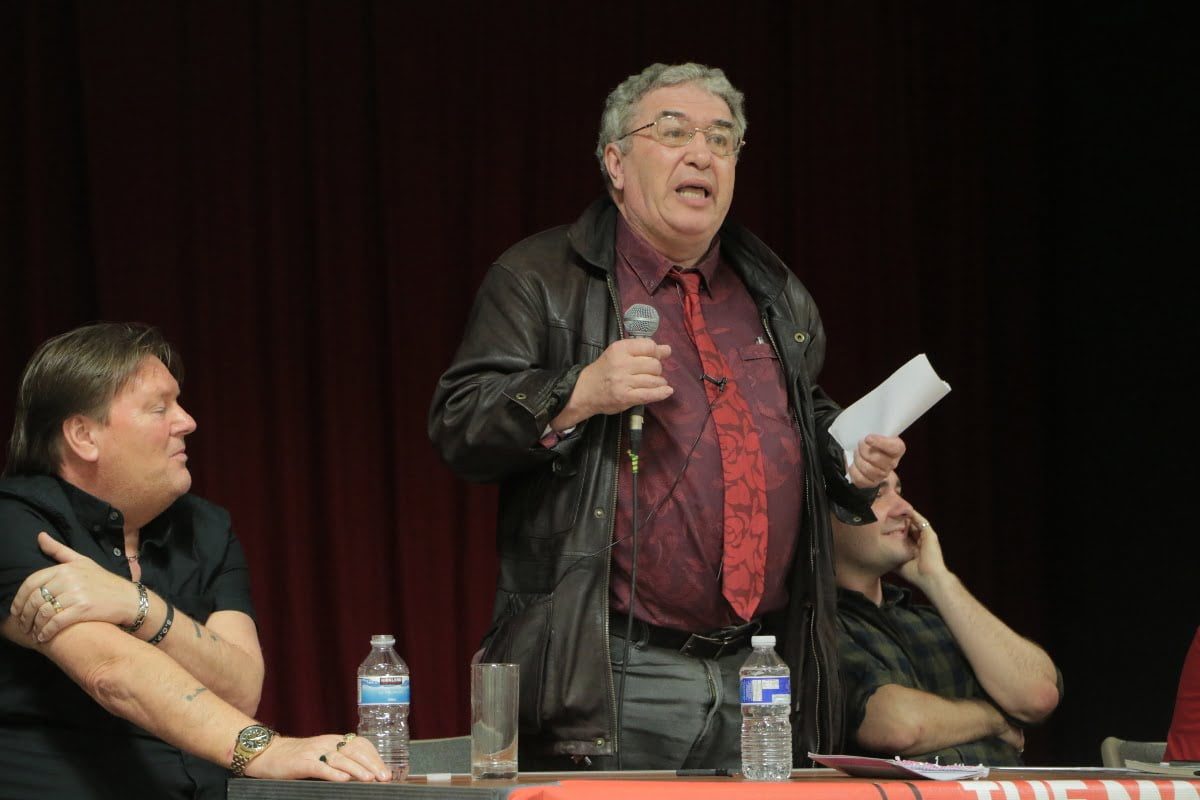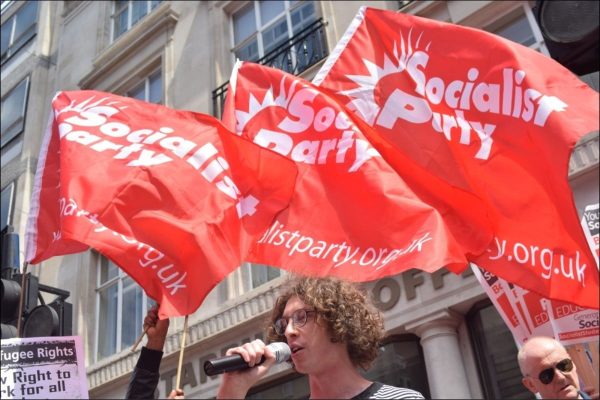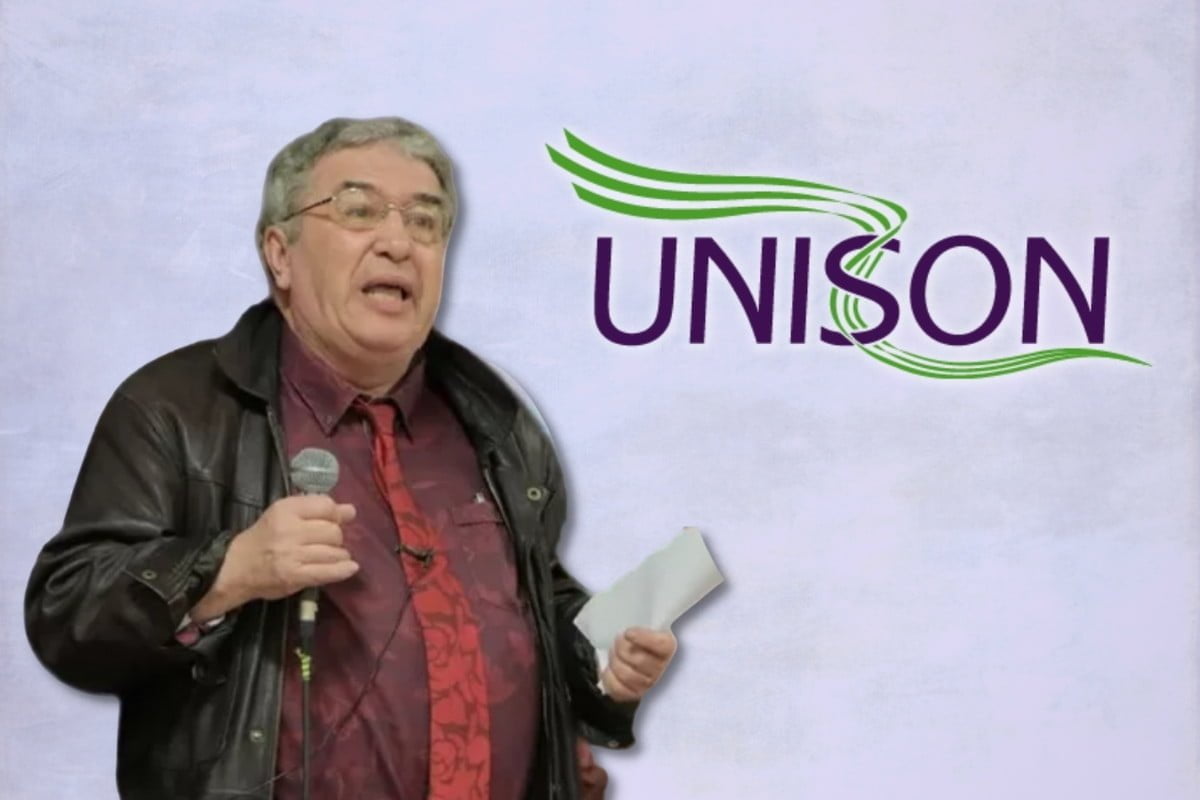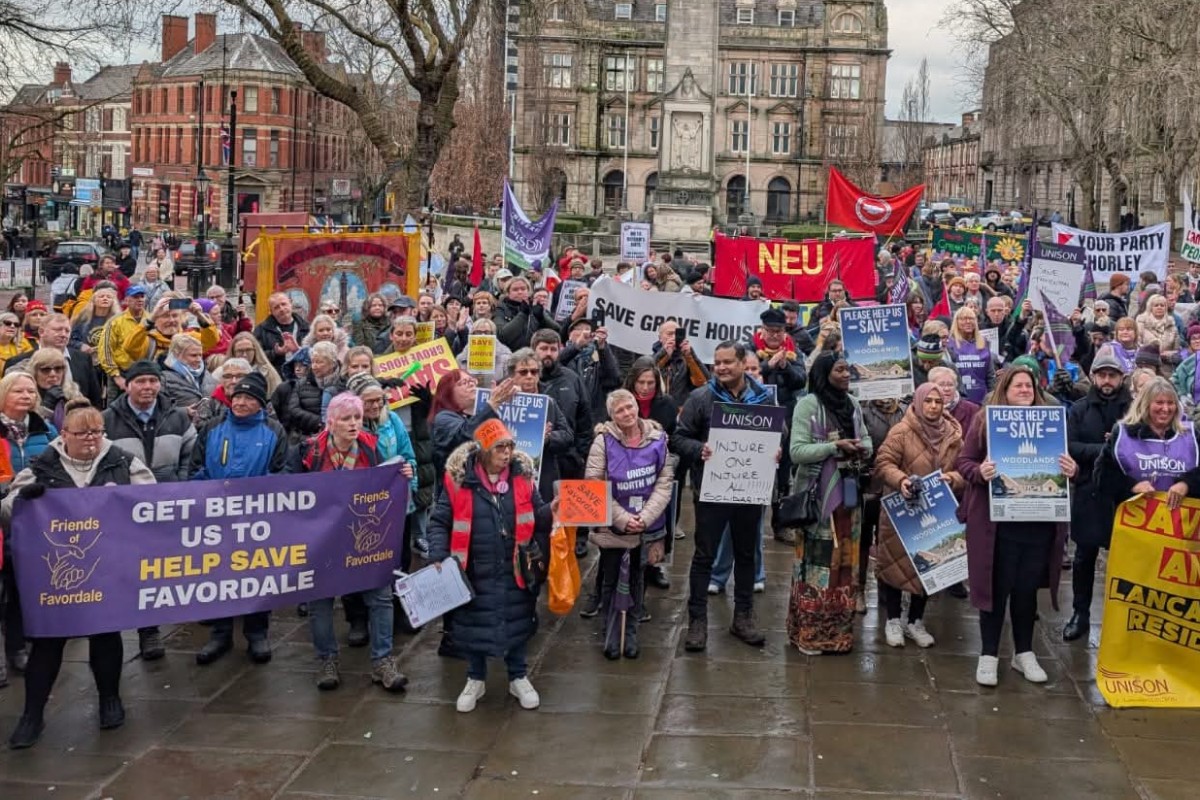Last Friday, 23 June, the outcome of Paul Holmes’ employment tribunal was announced. The result was in favour of the employer.
The judge’s verbal statement, according to Paul’s legal team, “lacked merit”. This verdict is bound to raise more questions than it answers.
The evidence presented to the tribunal has shed light on the allegations made against Paul; the convoluted process that Kirklees Council carried out to investigate them; and the shameful role of so-called ‘Socialist’ Party members in collaborating with the council.
Who benefits?
First and foremost, we must answer the key questions in this whole affair. What message does this case send to every public sector employer in Britain? And who benefits from seeing Paul dragged through the mud?
Here we have a leading lay trade unionist, the president of Unison at the time of his dismissal, sacked on extremely spurious grounds.

As was demonstrated in the tribunal, even the ‘external investigator’ hired by Kirklees Council (more on this later) stated that one allegation was “lacking sufficient evidence” to prove, and that the other was “very low level”.
It is important to note that Paul denies the allegations outright.
Paul’s record as a trade unionist and a worker is exemplary. In 48 years’ service with the council, until now, he had no disciplinary record. In 30 years as branch secretary of the union, not one member of the branch he represented was sacked, and there was only one compulsory redundancy in the council.
During his suspension from work, Paul stood as the left candidate in the contest to be general secretary of Unison. He won the highest percentage vote of any rank-and-file candidate in the history of the union.
It is clear, therefore, even before the case is examined in detail, that this is someone the employers – and the establishment – would very much like to be rid of.
If a militant worker can be sacked on such a basis, let alone someone as prominent as Unison’s former president, then this opens the door for any employer looking to victimise active trade unionists in their workplace – those who are prepared to fight to defend their members.
This shows the real class interests involved in this case.
Allegations
The first allegation against Paul was that he used “threatening behaviour” in a meeting. This is the allegation for which the external investigator stated there was insufficient evidence to prove.
One of the two witnesses didn’t even mention an incident taking place. And no complaint was made until three months after the alleged incident. Naturally, Paul denies threatening anyone.
The second allegation of “controlling behaviour” seems even more spurious, based largely on hearsay.
In terms of concrete allegations, which are sparse, Paul is accused of giving an ex-branch employee the cold shoulder at a social event, some eight years after they left the branch.
Much time had passed since they last spoke, however, and Paul explained that he simply didn’t recognise her.
Another allegation, claiming that Paul had poked fun at a female branch employee with a foreign accent, was quoted in his dismissal letter. But there was no mention of this in the 500 pages of evidence presented to the disciplinary.
Under cross-examination at the employment tribunal, Mr Parr, the manager who heard the case, admitted that he may have seen reference to it “on social media”, and added it on that basis. The rest of the allegations of “controlling behaviour” are of a similar nature.
To top off this farce, a third allegation was kicked out at the disciplinary stage. Truly a cast-iron case by the employer!
Meddling
When called in to assess this situation, the external investigator employed by the council initially found that there was pretty much no case to answer. The council, however, couldn’t allow that to be the end of the story.
In the papers that were presented as evidence at the employment tribunal, there are actually five different versions of the investigatory report. The external investigator sent the report to the chief personnel officer, who sent it back four times asking for it to be rewritten!
The final report, prepared by the supposedly ‘independent’ external investigator, eventually declared that the allegations against Paul amounted to “gross misconduct”. This is despite the initial conclusion of “no case to answer”.
Throughout the whole of this process of investigation, Paul was never told what the allegations against him were. As such, he wasn’t able to call his own witnesses to shed light on key situations, or to challenge the allegations.
When this was raised, Mr Parr was challenged as to whether he had actually taken any notice of any of the evidence that was presented to support Paul.
There is a table in the tribunal papers, presented as a grid, which cross-references each of the allegations against the witnesses who had spoken against Paul.
When he was challenged as to where the grid was to reference the witnesses who supported Paul, Mr Parr had nothing to say.
Scab behaviour
The role of the Socialist Party (SP) in this case has been particularly toxic. One then-SP member, Mike Forster, a man who has been a long-term political opponent of Paul, wrote a three-and-a-half page letter to the council, offering to help them in the disciplinary.

Forster’s letter outlined his gripes against Paul, demonstrating his ill-will.
According to evidence, Forster went on to contact and organise ‘witnesses’ to offer further allegations. These included two women who had been sacked by the branch 17 years ago, as a result of a case involving financial irregularities, and who Forster had previous contact with.
Paul is clear that Forster’s evidence was simply a political attack, aimed at undermining him in the branch and putting his job in jeopardy.
Worse than that though, the council didn’t approach Forster – he actually wrote to the council first, offering to support them in their case against Paul. This is the behaviour of a scab.
Just when has it ever been acceptable for a trade union activist – let alone a self-declared socialist or a supposed Marxist – to side with an employer that is clearly intent on witch-hunting a nationally prominent trade unionist?
Any active worker knows that someone in Paul’s position represents a thorn in the side of the employer. Someone as prominent as Paul is also a headache for the wider establishment, the right wing in the labour movement, and the class forces they represent.
To collaborate with the employer in this situation is an act of gross sectarianism – and a betrayal of every basic tenet of the workers’ movement.
Solidarity
The Socialist Party has already had some kickback from their actions, losing three of their four seats on the Unison NEC in the recent elections. They claim that this was because the left didn’t campaign for them.
It’s clear that the actions of the SP – standing against the left, and attacking well-known left figures who stand in their way – led many branches to choose not to nominate SP candidates this time around.
Notably, Hugo Pierre, one of the SP’s better-known candidates, received 44 fewer branch nominations this time around than in 2021.
And within Kirklees Unison branch, the Socialist Party branch secretary, who was previously elected unopposed (after Paul was barred from standing and another candidate withdrew), was defeated at this year’s branch AGM.
The judge will present her written conclusion in a couple of weeks. After this, Paul has six weeks in which to lodge an appeal. Paul has every chance of winning at that stage.
There are also plenty of scandalous details that will come out over time, revealing the intrigues and witch-hunting behaviour of the council, the connivance with management, and the sectarianism of the Socialist Party.
All honest workers, however, will judge Paul on the basis of his track record as an outstanding trade unionist and class fighter, with decades of service to the movement.
Justice for Paul Holmes! Solidarity!






